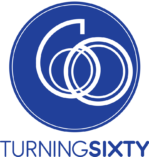A Few Friendly Starting Points
For those who feel curious about learning something new online but aren’t sure where to begin, the good news is that there’s no shortage of options. In fact, one of the hardest things can be deciding which path to follow first. But you don’t need to know exactly where you’re going. The first step is simply to explore, and there are a few places that make that easier than you might expect.
Some of the best resources are designed with beginners in mind, offering free or low-cost courses that you can dip into without pressure. One gentle place to start is FutureLearn. Based in the UK and created in partnership with universities and cultural institutions, it offers short, accessible courses on everything from wellbeing and history to science and creative writing. The tone is friendly, the layout is clean, and many of the courses are free to try, with the option to pay if you’d like a certificate or extended access.
Another strong option is OpenLearn, which is part of The Open University. It’s completely free and covers a huge range of topics, from the arts and humanities to practical skills and current affairs. The site feels welcoming, and the courses are broken into bite-sized chunks that make it easy to fit learning around daily life. If you’ve ever wondered what it would be like to study a subject again, this is a kind way to find out.
For those who are comfortable online and want to try something a little broader, Coursera offers access to courses from universities around the world. Some are more academic in tone, others more relaxed. You can learn about psychology, music, technology, or even philosophy, and many courses can be taken for free in what’s called “audit” mode, meaning you get the learning without needing to pay or complete assignments.
Another option worth exploring is edX, which offers high-quality courses from universities around the world, including Oxford, Harvard, and MIT. While some of the courses can feel quite academic, many are suitable for beginners and cover a broad range of topics, from art appreciation and health science to climate change, literature, and world history. You can usually take courses for free in “audit” mode, meaning you can access the materials without having to pay or earn a certificate. If you’re interested in more in-depth study or just want to sample university-level thinking in a flexible way, edX can be a very rewarding place to start.
What all of these platforms have in common is that they’re open. Open to different ages, different backgrounds, different reasons for learning. You don’t need to be good at technology to begin. You just need to be willing to try, and to know that a wrong click is not a failure, just part of the process.
The beauty of online learning is that it meets you where you are. Whether you want something light and fun, something practical, or something to sink your teeth into, it’s all out there, and often, just a click or two away.
So if something catches your eye, follow it. Whether it’s a course on ancient myths, digital photography, birdwatching, or how to write a memoir, give yourself permission to explore. After all, learning doesn’t end with school or work.
Sources
Online courses from top universities and organisations FutureLearn
Free online courses from top institutions edX
Free learning from The Open University OpenLearn (The Open University)
Learn without limits Coursera
